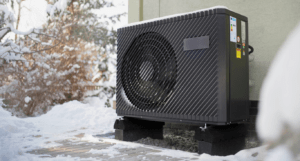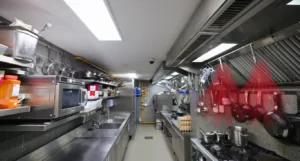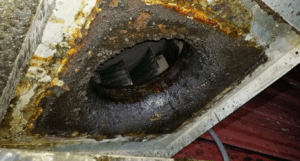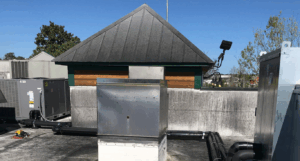So You Want to Be an HVAC Technician? Good Luck!

Table of Contents
Understanding the Role of an HVAC Technician
So, you’re thinking about becoming an HVAC technician, huh? Well, get ready to dive into a world filled with enough vents, filters, and thermostats to make your head spin. Picture yourself as the unsung hero who can save a household from the perils of a sweltering summer or a bone-chilling winter. Forget capes; your trusty wrench is all the hero gear you’ll need.
Now, don’t get too starry-eyed. This job is as much about solving puzzles as it is about fixing broken parts. Think of each HVAC system as a giant, mechanical mystery waiting for you to crack the code. And let’s be honest, the real fun starts when you’re staring at a wiring diagram that looks like it was designed by someone who hates you. Customer service? Yep, that’s a biggie too. Get ready to smile and nod as clients explain how their thermostat must be possessed by a vengeful spirit.
And then there’s the physical aspect. Your gym membership might gather dust because you’ll get all the exercise you need lugging around heavy equipment and squeezing into the kind of tight spaces that would make a contortionist proud. You’ll also become a pro at multitasking—like holding a flashlight, wrench, and conversation about the weather all at the same time. Talk about skills!
But wait, there’s more! The HVAC life means keeping up with the latest heating and cooling tech trends, because heaven forbid the industry stays the same for more than five minutes. Each day brings new gadgets, gizmos, and those wonderful moments when a client pretends to know what a BTU is. HVAC Pro tip: Just smile, nod, and maybe throw in a fun fact about refrigerants.
So, welcome to the chaotic, yet oddly satisfying world of the HVAC industry. It’s a rollercoaster, but hey, someone’s got to make sure the world stays cool and cozy. And who better than you, future HVAC superstar?
Educational Requirements
Ready to jump into the glamorous life of an HVAC technician? Well, not so fast. Before you start rescuing folks from the clutches of heatwaves and frostbite, you’ve got to hit the books. Yep, even superheroes need a bit of schooling.
First up, you’ll need that good old high school diploma or GED. Think of it as your backstage pass to the HVAC concert. And remember those math classes where you wondered, “When will I ever use this in real life?” Surprise! Algebra and geometry will become your new best pals when you’re calculating load requirements and measuring ductwork. Who knew solving for x could keep someone’s AC from going kaput?
Next on the agenda: diving into some specialized HVAC installation, repair, and maintenance coursework. Picture yourself in classes like electrical systems and mechanical engineering, but without the boring bits. You know, the kind where you can actually play with tools and not just stare at them in a manual. If your school offers shop class, get in there. Knowing how to use a wrench is like knowing how to wield Thor’s hammer in the HVAC world.
But wait, there’s more! Trade schools and community colleges are your next pit stops. They offer programs specifically designed for future HVAC wizards like yourself. Here, you’ll learn the ins and outs of heating, ventilation, and air conditioning systems. It’s like Hogwarts, but with more wiring diagrams and fewer magical creatures.
Oh, and don’t forget about those online courses. Perfect for when you want to study in your pajamas. Just make sure they’re from an accredited source, so you don’t end up learning from some guy in his basement who thinks he invented air conditioning.
So, gear up and get ready to embrace the world of HVAC education. It might not come with capes and theme songs, but hey, you’ll have the knowledge to keep everyone cool and cozy. Plus, nothing says “I’m smart” like knowing the difference between a condenser coil and an evaporator coil.
Training Programs and Apprenticeships

Time to get your hands dirty – literally. You’ll need to find an accredited HVAC technician program where you can trade theory for hands-on chaos. Look for schools that offer practical training because there’s nothing like the feeling of an AC unit in your arms to make you question your life choices.
Apprenticeships are the secret sauce to your HVAC success. Under the watchful eye of experienced and seasoned HVAC contractor, you’ll gain the kind of real-world experience you can’t get from a textbook. Plus, you’ll learn how to juggle tools like a pro while managing the delicate art of fitting into tight spaces. It’s kind of like yoga but with more wrenches.
The good news? Many apprenticeship programs pay you while you learn. So, not only will you get invaluable heating and air conditioning repair, installation, and HVAC maintenance experience, but you’ll also avoid living on ramen noodles. You’ll get to tag along on real jobs and fix heating and cooling systems, and maybe even enjoy a few awkward moments in strangers’ attics. Who wouldn’t want that?
And let’s not forget the joy of mentorship. Having a seasoned HVAC technician show you the ropes (and wires, and ducts) can be a game-changer. They’ll pass on their wisdom, tricks of the trade, and maybe even some colorful language for when things don’t go as planned. By the end, you’ll be able to handle HVAC emergencies with the calm of a bomb squad technician.
So, gear up for a combo of schooling and apprenticeship that will turn you from a clueless newbie into a semi-clueless HVAC savant. Remember, every twist of a wrench and every crawl through a dusty crawl space is one step closer to mastering the craft.
Certification Process

Alright, so you’ve conquered the classroom, wrangled a few wrenches, and survived the wild world of apprenticeships. What’s next? Oh, just a little thing called certification. No biggie, right? It’s only the part where you prove you’re not just pretending to know what you’re doing.
First, you’ll want to look into certifications like NATE (North American Technician Excellence) or EPA Section 608. Think of these as your golden tickets to the HVAC world. These aren’t just fancy acronyms to impress your friends at parties—they’re the real deal, showing everyone that you’ve got the chops to handle the cooling and heating problems.
Now, getting certified isn’t exactly a walk in the park. It involves exams that will test your knowledge on everything from refrigerants to air flow, and yes, there will be fees. Consider it the universe’s way of reminding you that nothing worth having comes for free. You might find yourself holed up with your nose in a study guide, muttering about BTUs and superheat while your friends are out having fun. But hey, at least you’ll have some riveting new topics for small talk.
And here’s a fun twist: some places may even require you to have a few years of experience under your belt before you can take certain certification exams. It’s like the industry’s way of making sure you’ve got both the book smarts and the battle scars.
Once you pass those exams, though, you get to flaunt that certification like a badge of honor. No more second-guessing when you’re face-to-face with a gnarly and noisy HVAC system; you’ll have the credentials to back up your swagger. Plus, you can finally tell your customers, “I’m certified,” and watch as they breathe a sigh of relief (or pretend to understand what that means).
So, get ready to dive into the HVAC technician certification process with all the enthusiasm of someone who just found out their favorite TV show got renewed for another season. After all, nothing says “I’m legit” like an official piece of paper with your name on it.
Staying Updated with Industry Changes

So, you’ve got that shiny HVAC technician certification, and you’re feeling pretty invincible, huh? Well, hold onto your wrench because the HVAC world is about as stable as a game of Jenga. Just when you think you’ve got it all figured out, a new piece of heating and cooling technology or regulation comes along to keep you on your toes.
Let’s talk tech for a second. Remember when thermostats were just those simple dial things? Yeah, not anymore. Now they can practically make you a sandwich. Smart thermostats, high-efficiency HVAC systems, and eco-friendly refrigerants are all part of the ever-changing landscape. Keeping up with these trends is like trying to chase a tornado while riding a unicycle—challenging but totally doable.
Continuing education isn’t just a fancy term for “more school.” It’s your ticket to staying ahead of the curve. Whether it’s online webinars, night classes, or industry conferences, there’s always something new to learn. Think of it as collecting Pokémon—gotta catch all the latest HVAC knowledge.
Oh, and regulations! Just when you’ve memorized the latest EPA rules, they go and change them. Staying compliant is crucial unless you enjoy the thrill of potential fines and legal headaches. Plus, knowing the latest standards makes you look like a rock star to clients who are convinced their residential or commercial HVAC system is the most complex machine ever created.
So, stay curious, keep learning, and never let your toolbelt gather dust. The HVAC technician industry is a wild ride, but with a little dedication and a lot of humor, you’ll stay ahead of the game. Now go out there and show those systems who’s boss!
Conclusion
There you have it, you should now have a bit of understanding of what it will take to become and certified residential and commercial HVAC contractor. As long as you stay dedicated and continue your education regarding common air conditiong and heating issues, you should find yourself turning out to be one heck of a professional HVAC technician.
For more useful HVAC technician tips about heating and cooling problems and gas heating, be sure to read our following related articles.































